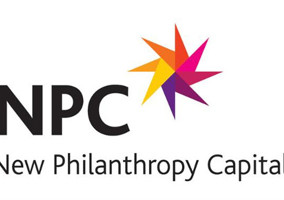More must be done to measure the value of the charity sector in order to help government understand the role it can play in solving deep economic and social divides, a Charity Commission paper has said.
Written in collaboration with Lord Gus O'Donnell's Frontier Economics consultancy, The Value of the Charity Sector argues that politicians must “take a view” on the importance of charities, and that “proper measurement” would allow the sector to deliver more benefit and understand its own value.
It states: “Action to understand the value of the charitable sector is needed urgently if we are to avoid the risks and achieve that better outcome.
“Policy decisions about the role and nature of charities in society will be prominent in the coming years. Without a clear articulation of the sector’s value, those decisions could further blur the lines between charitable and other activities, to the detriment of all.”
Risks to charities that fail to measure impact
The paper says charities face risks if they do not attempt impact measurement. These include overlooking or undermining wider public benefit, instead focusing simply on the services the charity provides.
The paper acknowledges that charity is “intrinsically worthwhile”, and that aspects of charitable work and charities may not be easy to measure objectively. However, it says there are often situations where charities are required to show their impact, for example to attract donors, and where charities would benefit from thinking about who benefits from their activities.
The paper gives five components for measuring the social impact of charities, over simply their economic output.
- Direct value to the public who receive charitable services
- Value to members of the public who volunteer for charities
- The wider value to members of the public who donate to charities, beyond the value of the donation
- The wider value to employees of charities, beyond salaries
- The wider benefit to society through the broader role of charities, distinct from specific impacts on individuals.
'Charitable instinct is a distinctive force'
Speaking about the report, Baroness Tina Stowell, chair of the Charity Commission, said: “The charitable instinct, deriving from concern and care for other people and a desire to further the public good, is a distinctive force in British society.
“It is important to the economy too.
“As we seek to navigate our way through turbulent times, charity has the potential to deliver even more benefit but the stakes are high: if we fail to recognise, respect and realise the true value of charity, we risk undermining a much-needed and powerful force for unity and cohesion in our society and what makes it special.”
|
Related articles












